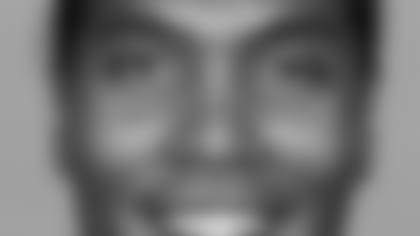Posted: 7 p.m.
New Bengals defensive coordinator Mike Zimmer, who has been calling defensive signals for eight NFL seasons, is glad the league may be ready to give his unit a radio helmet to match the one worn by the quarterback.
"Honestly, the best thing it will do is stop the offense from stealing our signals," Zimmer said Wednesday. "You always have to worry about changing signals or changing wristbands. Now it's more even. I think it's good for the game."
Zimmer isn't talking about videotape swiping, although that figures to be a big part of the NFL's integrity-of-the game push at next week's annual meeting in Palm Beach, Fla., where the defensive helmet and other items are to be put in front of ownership for a vote.
The owners won't be voting on NFL commissioner Roger Goodell's effort to implement an ethics audit in each organization.
Last year it was player conduct that dominated the meetings. Now, in the wake of New England's Spygate and San Francisco's fine for tampering, team conduct is under Goodell's microscope, and he'll tell teams that out of the group of owner, president, general manager and head coach, he wants someone responsible for certifying what amounts to an annual audit of following the rules.
There will be a discussion of the impending collective bargaining crisis that the owners have been told not to take public. As owners break ranks on the collective bargaining agreement with the NFL Players Association, there is a fear the sides will collide in killing the CBA and make 2010 a year with no salary cap.
Yet owners such as Bengals president Mike Brown are adhering to a media blackout on the subject and don't plan to comment.
 Houshmandzadeh |
"But I know that football is the most popular sport in the world and that everyone is making money," Houshmandzadeh said. "It would be crazy to go through what baseball went through and what every other sport has gone through. Hopefully it won't come to that."
Beyond the hair-raising agenda item proposed by the Chiefs that would force players like Houshmandzadeh and defensive tackle Domata Peko to jam their flowing hair into their uniforms, other topics to reviewed next week:
In an effort to cut down on tampering before free agency, it has been proposed that a window of five to seven days be opened before free agency in which agents can talk to teams but not sign deals.
Under the proposal, players still couldn't take visits or talk to prospective teams until free agency begins. Rich McKay, president of the Falcons and co-chairman of the competition committee, said he thinks that would help teams re-sign their own players because there would be a better feel for the market.
No longer will a division winner automatically get a higher playoff seed and home game. It will go by best record and ties will go to the division winners in an effort to make the last games of the regular season mean something to teams that have already clinched a spot. In the six-team conference fields, the two top seeds go to the division winners with the best record and then the last four clubs are broken down by record.
Asked if that now cheapens a division championship, McKay argued it would not because it still guarantees a playoff berth and determines a better seeding if a tie is involved.
There will be no more forceouts on the sidelines after a receiver catches the ball. Either he has both feet in-bounds or out-of-bounds when the catch is made no matter what. Only if a receiver is carried out will it be called.
Field goals can be challenged with instant replay if there a question of left or right of the uprights or over or under the crossbar. But not if the ball goes directly over the uprights, because there isn't a good enough camera angle.
No more five-yard facemask penalties. It's either the twisting or turning variety for 15 yards. Or nothing.
The team that wins the toss can defer.
Bengals head coach Marvin Lewis is a member of the NFL Competition Committee that has been unable to figure out how to get the defensive helmet on the field the past couple of years.
Now that the proposal includes two players being designated with the helmet, McKay thinks it will pass. But the players must be designated before the game and can't be on the field at the same time. If the primary signal caller is hurt or gets subbed out, the backup player gets to put on his own radio helmet that is identified with a decal.
"It's a start," said Zimmer, who, naturally, would like to see both players get on the field with it at the same time. "The big thing is to be able to get the call into the game. The offense had that advantage at the tail end (of the communication) where they could be told, 'Cover 2' or something.
"Beyond that, I haven't got into it all that much but I think the major thing is we won't have to worry about the signals being stolen."
Zimmer is talking about the average, every-day, run-of-the-mill, signal-stealing from the sidelines and press box. Nothing that would get anyone suspended. But it takes time to combat it.
"You might have four different signals for Cover 2," he said. "You might have different wristbands for each quarter. It was something that you just did during the week as part of your preparation."
But Zimmer notes that giving just one guy the signals doesn't cover all facets of the defense, since the front seven and secondary are immersed in different roles.
"You would think it would probably be the defensive back," said Zimmer of his candidate for the helmet. "They're the guys that do a lot of the communicating with the other guys. But you have to see how it fits with what you're doing."













